Why Donkeys Are Symbolized as Stupid — The Truth About These Intelligent Animals
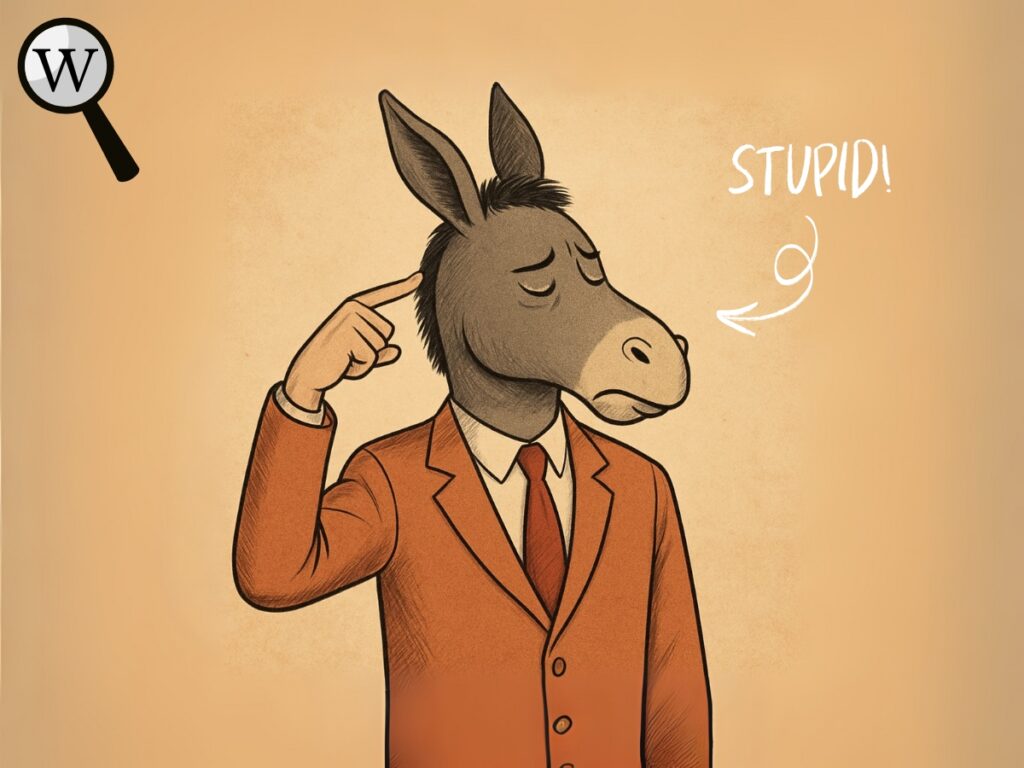
Donkeys have long been unfairly labeled as symbols of stupidity, a misconception that has persisted for centuries. These intelligent creatures, closely related to horses, actually possess remarkable strength, patience, and problem-solving skills. Understanding why They are mistakenly linked to stupidity and learning about their true nature is essential for anyone curious about animals, especially those considering donkeys as pets or working animals.
Table of Contents
Why This Animals Associated with Stupidity?
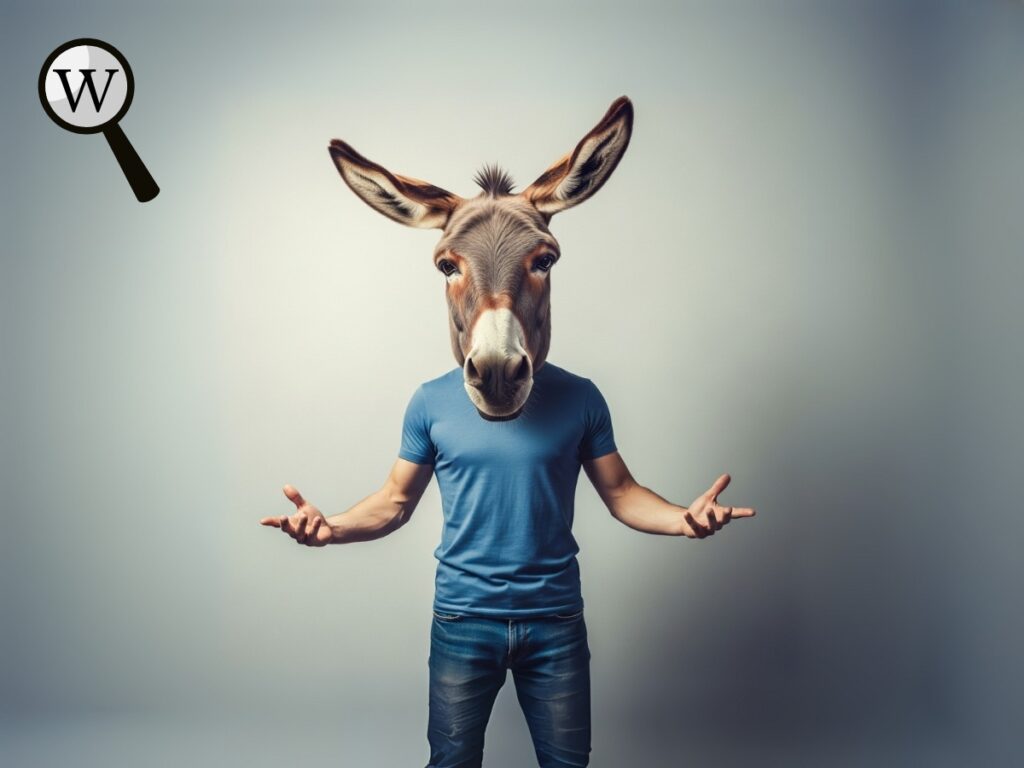
The idea of donkeys symbolizing stupidity likely originated from their cautious behavior, which people often misinterpret as stubbornness or ignorance. They have a natural survival instinct that makes them think twice before acting, unlike horses which tend to flee immediately from danger. This thoughtful approach can sometimes be mistaken for obstinacy or low intelligence, but it’s actually a sign of strong cognitive abilities and self-preservation.
In fact, donkeys have shown the ability to learn complex tasks and remember routes and locations for years. Studies also reveal that donkeys can understand simple human commands and respond appropriately, demonstrating a higher level of awareness than most people assume.
Why They Make Excellent Companions
If you’re considering donkeys as pets, their unique traits make them stand out among other domestic animals:
Intelligent Problem Solvers: They can figure out simple puzzles and are able to adapt to new situations with patience and curiosity.
Loyal and Affectionate: form deep emotional bonds with their owners and other animals, often showing empathy and comfort when others are distressed.
Low Maintenance: They require less food compared to horses, and their hardy nature allows them to thrive in rough environments where other animals may struggle.
Calm Temperament: Their gentle and patient behavior makes them suitable for families, including those with children.
Their Relation to Horses
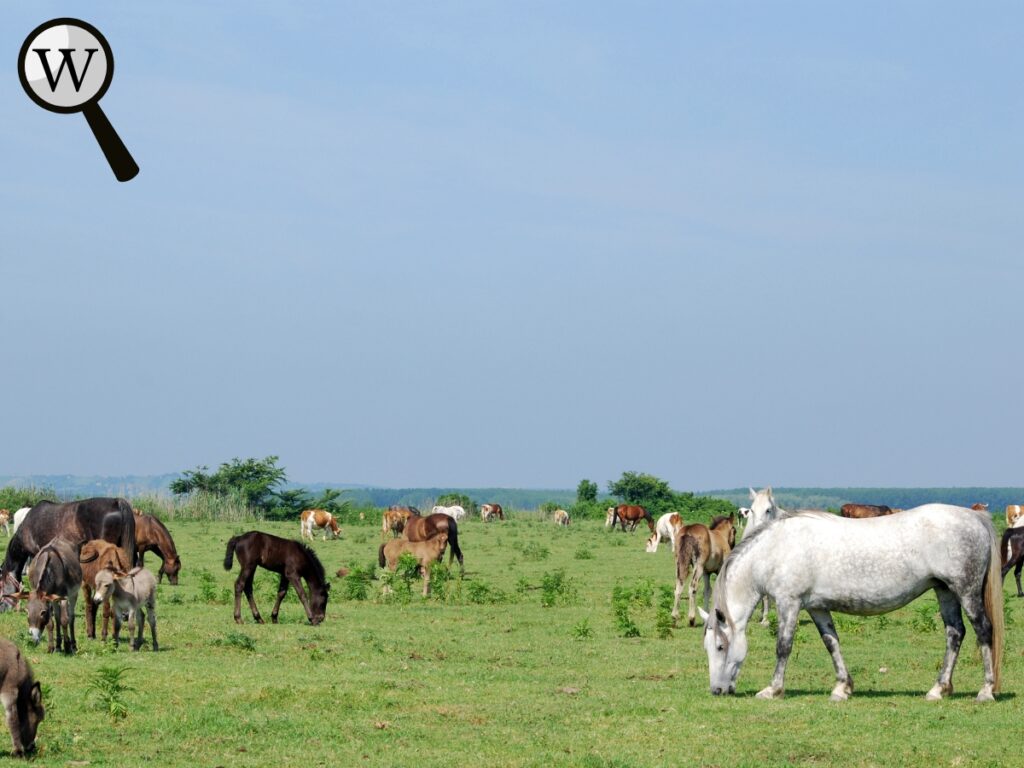
Donkeys belong to the Equidae family, the same family as horses and zebras. Despite their smaller size, donkeys share many physical and behavioral traits with horses but also exhibit distinctive characteristics that highlight their intelligence and resilience.
Differences Between Donkeys and Horses
| Feature | Donkey | Horse |
|---|---|---|
| Size | Smaller | Larger |
| Behavior | Cautious, thoughtful | Flighty, reactive |
| Sound | Braying | Neighing |
| Strength | Strong for their size | Strong, built for speed |
| Ears | Long, highly mobile | Shorter |
While horses tend to react instinctively by running, donkeys assess potential threats carefully before deciding how to respond. This “thinking before acting” attitude is a key reason behind their reputation for stubbornness but actually reflects cognitive strength.being “dumb,” showing instead how they are adapted perfectly for their environments.
The Strength and Patience of Donkeys
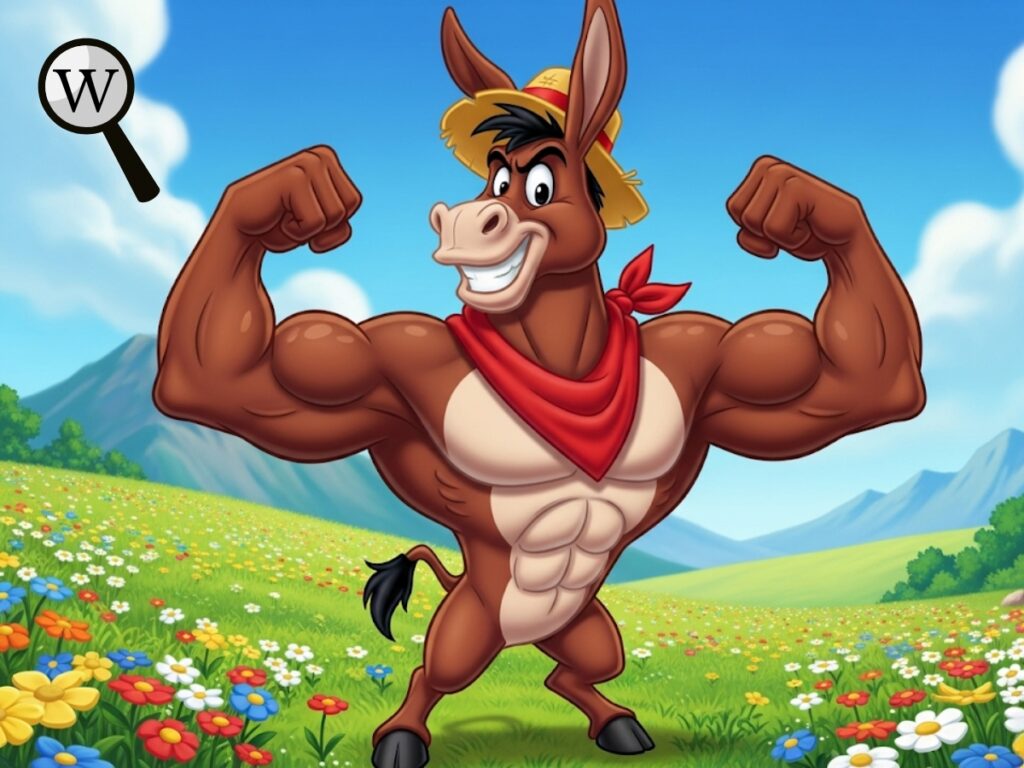
They are not only smart but also incredibly strong and patient animals. Their ability to carry heavy loads and endure harsh weather conditions makes them invaluable in many parts of the world.
Key Traits:
Resilience: They can survive with minimal water and poor-quality food better than horses, which adds to their reliability as working animals.
High Endurance and Stamina: They can work for long hours under tough conditions without tiring easily.
Excellent Memory: They can recall places and people they have met years earlier.
Strong Social Bonds: They thrive in social groups and have complex communication through vocalizations and body language.
in Culture and Symbolism
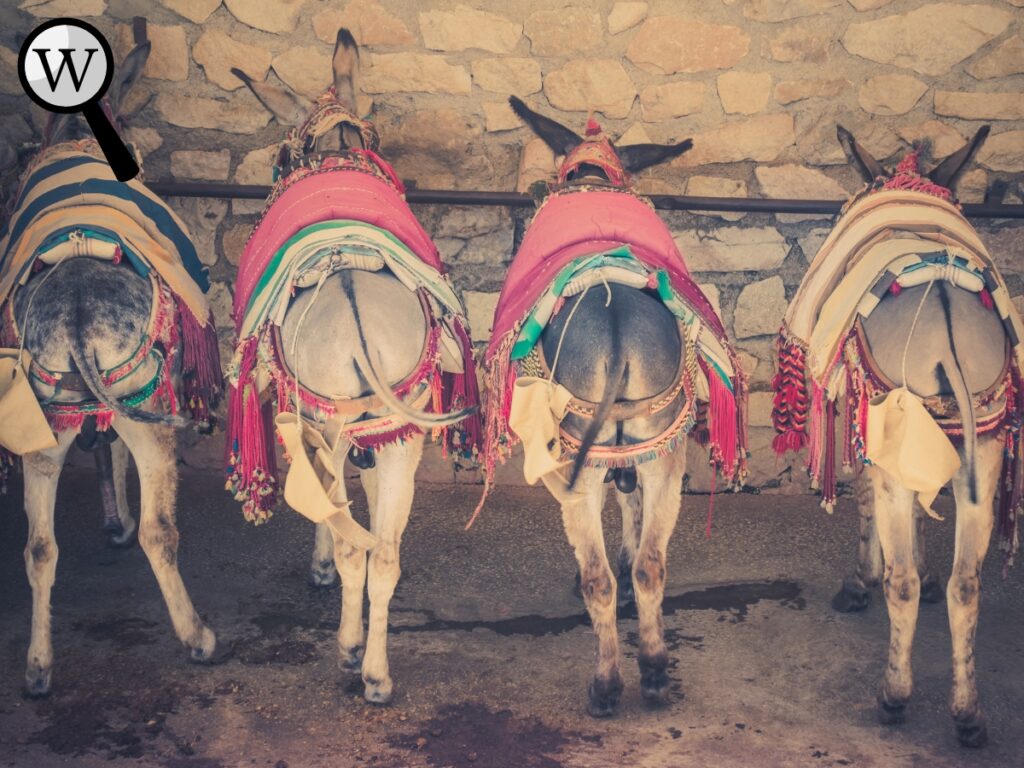
While donkeys have often been depicted negatively in popular culture — as stubborn or unintelligent — many cultures also celebrate them for their virtues:
- Symbol of Patience and Humility: In several religious and historical contexts, these animals represent humility and steadfastness.
- Work Animal of Choice: For centuries, they have been essential in agriculture and transport across many regions.
- Famous Characters in Media: Figures like Eeyore from Winnie the Pooh and the talkative sidekick in Shrek show the wide range of personalities—from gloomy to hilariously clever.
Understanding these cultural dimensions helps shed light on why they have a mixed reputation but remain undeniably important and respected animals worldwide.
Additional Facts and Resources
If you’re interested in more surprising facts like this, check out our full collection of animal-related topics!
To learn more about donkey behavior and care, the American Donkey & Mule Society provides extensive resources and research on these remarkable animals:
American Donkey & Mule Society
Watch This Video:
Donkeys — More Than Just Stupid Animals
Problem-Solving Abilities of These Hardy Animals
One of the most underestimated traits of these resilient creatures is their remarkable problem-solving skills. Unlike horses, which often rely on speed to escape danger, these animals use their brains to analyze a situation before acting. For example, when faced with an obstacle, they have been observed testing various ways to bypass or remove it rather than just trying to force their way through.
Research in animal cognition highlights that these pack animals can remember how to solve puzzles or navigate complex environments for long periods. This memory and intelligence enable them to learn from experience — a key survival trait in the wild.
This cognitive approach to challenges is often mistaken for stubbornness because they will refuse to act unless they are confident it’s safe. However, this trait is actually a form of self-preservation and careful thinking, making them far from “stupid.”
Donkeys as Working Animals — Strength and Reliability
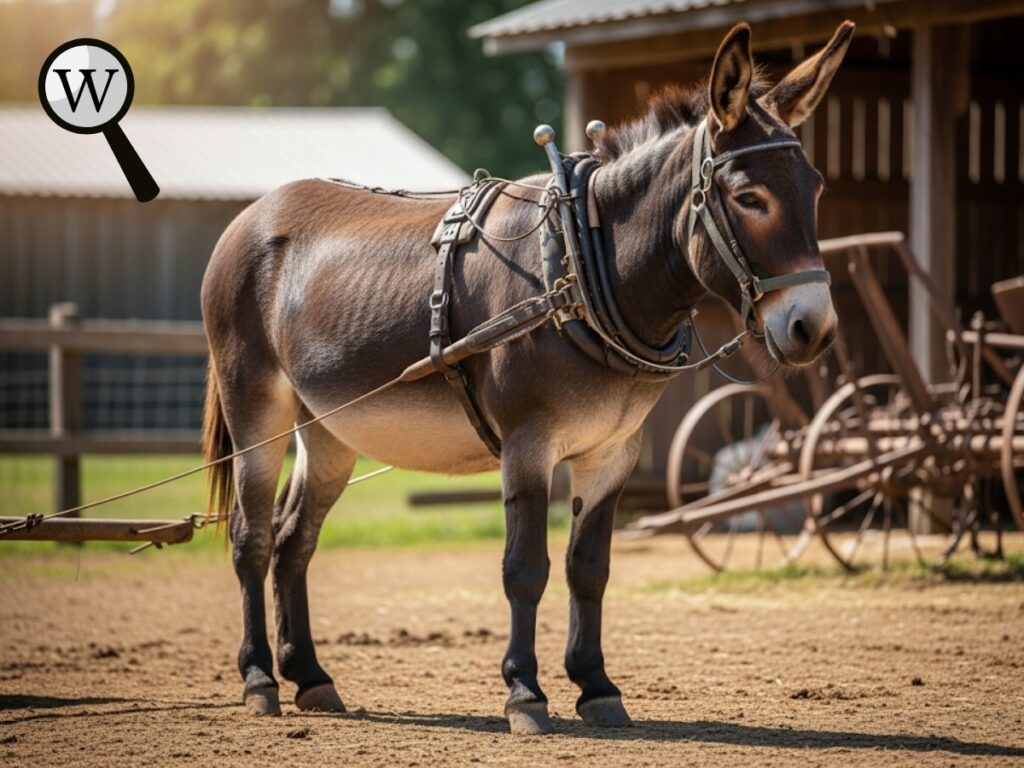
Donkeys have been used as beasts of burden for thousands of years, especially in rugged terrains where other animals might struggle. Their unique physiology equips them with several advantages:
- Sure-footedness: These sturdy creatures have tough, compact hooves that provide excellent grip on rocky or uneven surfaces.
- Energy Efficiency: They can carry loads heavier than their own body weight relative to horses, making them highly efficient for transport.
- Endurance: These animals don’t tire quickly and can walk for miles daily, making them essential for agricultural communities and nomadic cultures.
Because of their dependability, these reliable workers continue to be a backbone for many farmers and rural economies.
Social Behavior and Emotional Intelligence
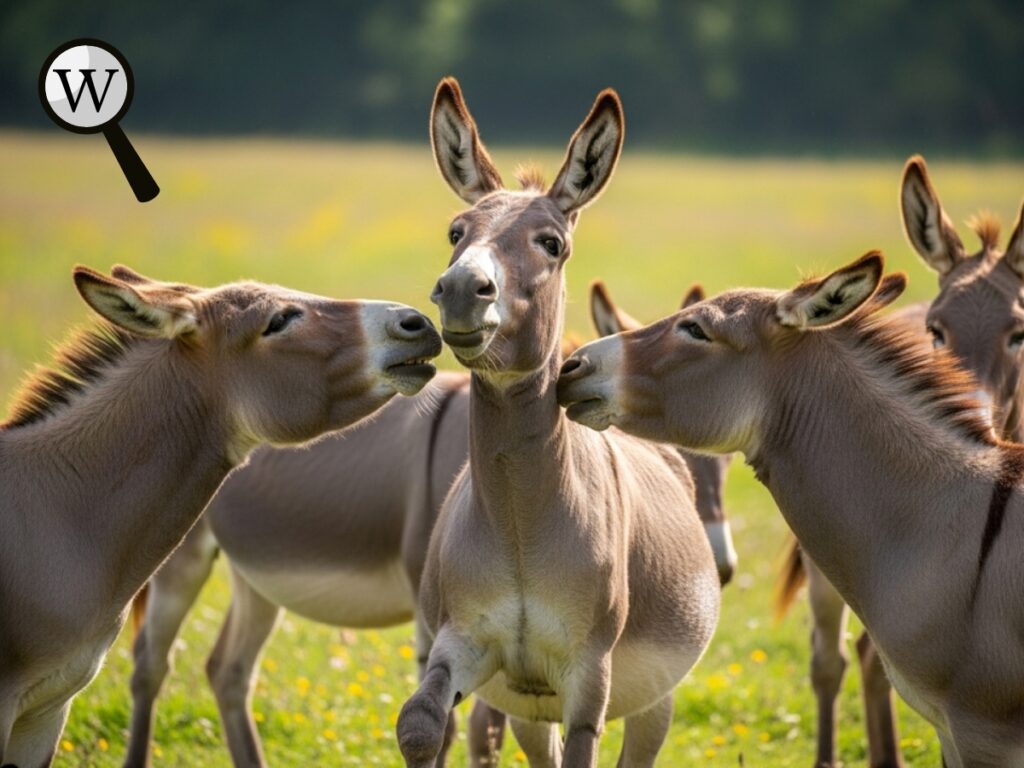
Donkeys are surprisingly social animals. They thrive on companionship, whether with others of their kind, horses, or even humans. Studies show they can form strong bonds and experience emotions similar to other mammals. For example:
- Grieving: These creatures have been observed mourning the loss of a companion, showing behaviors like vocalizations and decreased appetite.
- Empathy: They can sense when a friend or owner is distressed and will often approach to offer comfort.
- Communication: Using a range of vocal sounds—brays, snorts, and whispers—alongside body language like ear positioning, they express feelings and intentions.
This emotional intelligence further challenges the stereotype of them being dull or unfeeling.
Practical Tips If You’re Considering Donkeys as Pets or Working Animals
If you’re thinking about adopting one of these hardy animals, here are a few helpful tips:
- Space and Shelter: They need a secure outdoor area with protection from harsh weather.
- Companionship: It’s best to provide them with a fellow equine companion to avoid loneliness.
- Diet: They eat mostly grass and hay, but be cautious with grains, as they are prone to obesity.
- Healthcare: Routine care includes hoof trimming, vaccinations, and dental checks.
By meeting both their physical and emotional needs, they can become gentle, loyal companions. needs, donkeys can become gentle, loyal companions.
Their Roles in Our Lives
From their historic use as working animals to their modern role as affectionate pets, donkeys deserve a fresh reputation grounded in facts. Their intelligence, resilience, and social nature prove that calling them “stupid” is not only unfair but completely inaccurate.
Ready to Learn More About Donkeys?
Check out this comprehensive guide from the Donkey Sanctuary for in-depth information on care, behavior, and the wonderful bond you can build with these animals.
Conclusion
Donkeys have earned a false reputation as symbols of stupidity, but the truth is far more inspiring. Their intelligence, strength, patience, and loyalty make them valuable animals both as pets and working companions. Next time you hear someone call a donkey “stupid,” you’ll know the facts — these animals are anything but dumb.
What’s Your Experience With Donkeys?
Have you ever owned or worked with a donkey? Share your stories or questions in the comments below!








